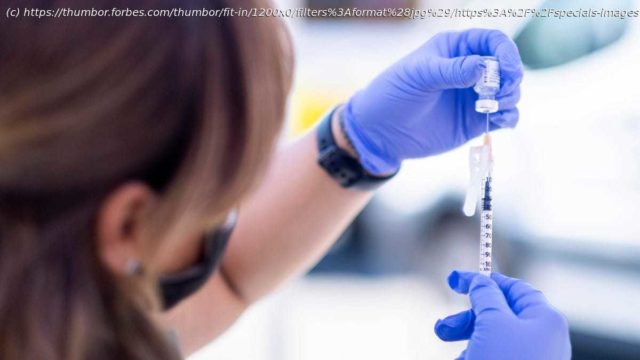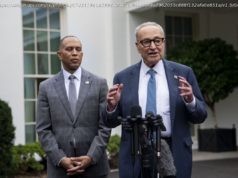As the Delta variant complicates return to “normal,” universities, employers and municipal governments take the “soft mandate” route—get vaccinated or face the consequences.
P resident Joe Biden isn’t making Covid-19 vaccines mandatory for federal workers, instead he’s making it much more difficult for those who chose to remain unvaccinated. They will have to submit to frequent Covid-19 testing, wear masks and socially distance themselves in the office. “We all want our lives to get back to normal, and fully vaccinated workplaces will make that happen more quickly and more successfully,” Biden said last week. “We all know that in our gut: With incentives and mandates, we can make a huge difference and save a lot of lives.” This approach is what’s known as a “soft mandate,” explains Dorit Reiss, a law professor who specializes in vaccine policy at the University of California Hastings Law School in San Francisco. Given the size and scope of the ongoing Covid-19 pandemic, universities and employers are facing the question of whether to require vaccinations, as well as the ethics of mandating a vaccine that has received “emergency” authorization but is not yet fully approved by the FDA. As the Delta variant complicates the return to “normal,” many public and private institutions are adopting this two-tiered system separating the vaccinated from the unvaccinated. “There are consequences here,” says Reiss, “they’re just less harsh than ‘get vaccinated or you’re fired.’” Yes, with some exceptions. Companies like Disney, Facebook and Google are mandating vaccines for certain employees, while municipal governments like New York City and Los Angeles are adopting soft vaccination mandates. If there is a unionized workforce, it is likely that the requirement would need to be negotiated with the union. Additionally, More than 630 colleges and universities are requiring at least some students and employees to be vaccinated against, according to a tracker from The Chronicle of Higher Education. The three Covid-19 vaccines authorized for emergency use in the United States—BioNTech/Pfizer, Moderna and Johnson & Johnson—have undergone “thorough scientific evaluation” in order to meet “safety, effectiveness, and manufacturing quality” standards, according to a statement from the FDA. Pfizer/BioNTech and Moderna have filed applications to receive full approval, which are currently being evaluated.






